Our History
Our History
David and Lucile Packard were philanthropists long before they helped transform a small electronics shop in their garage into one of the world’s leading technology companies, Hewlett-Packard. They formalized their passion for philanthropy in 1964 when they established the David and Lucile Packard Foundation.
David and Lucile intentionally did not write down a vision for the future of the Foundation. They believed that no one could foresee what the future would look like and wanted the Foundation to be able to evolve and adapt to the challenges of an ever-changing world.
David and Lucile’s children and grandchildren have taken an active role in the work of the Foundation, alongside general trustees and professional staff, and continue the important work that David and Lucile started.
Today, the values of the Foundation deeply reflect the history and philosophy of the Packard family’s approach to philanthropy and continue to guide the Foundation and its vision for a just and equitable world where both people and nature flourish.

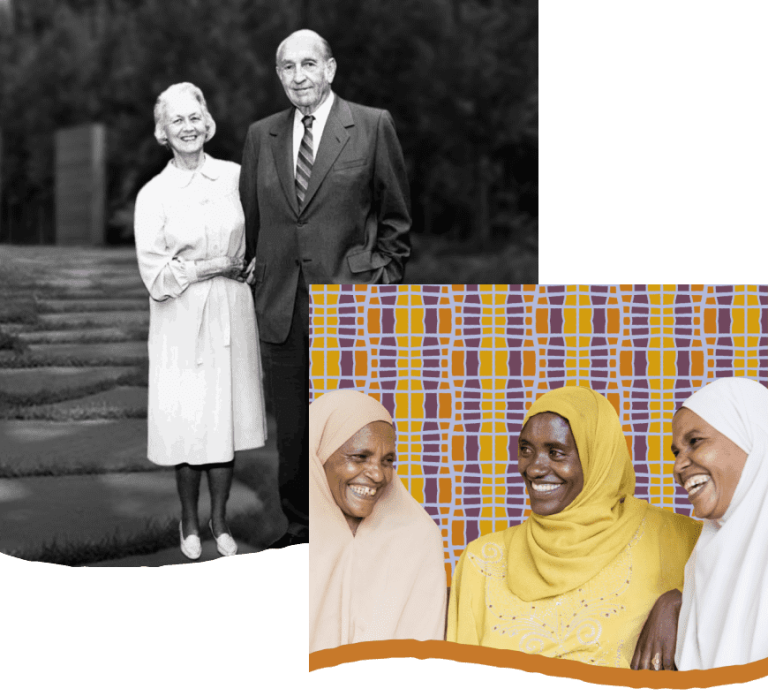
60
Years of Giving
Join us in celebrating 60 years of impact by exploring our foundation’s anniversary timeline and discovering our journey and achievements.
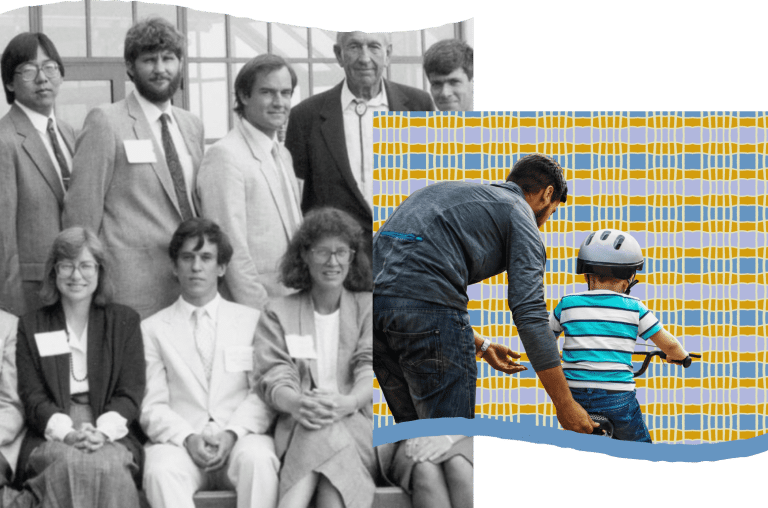

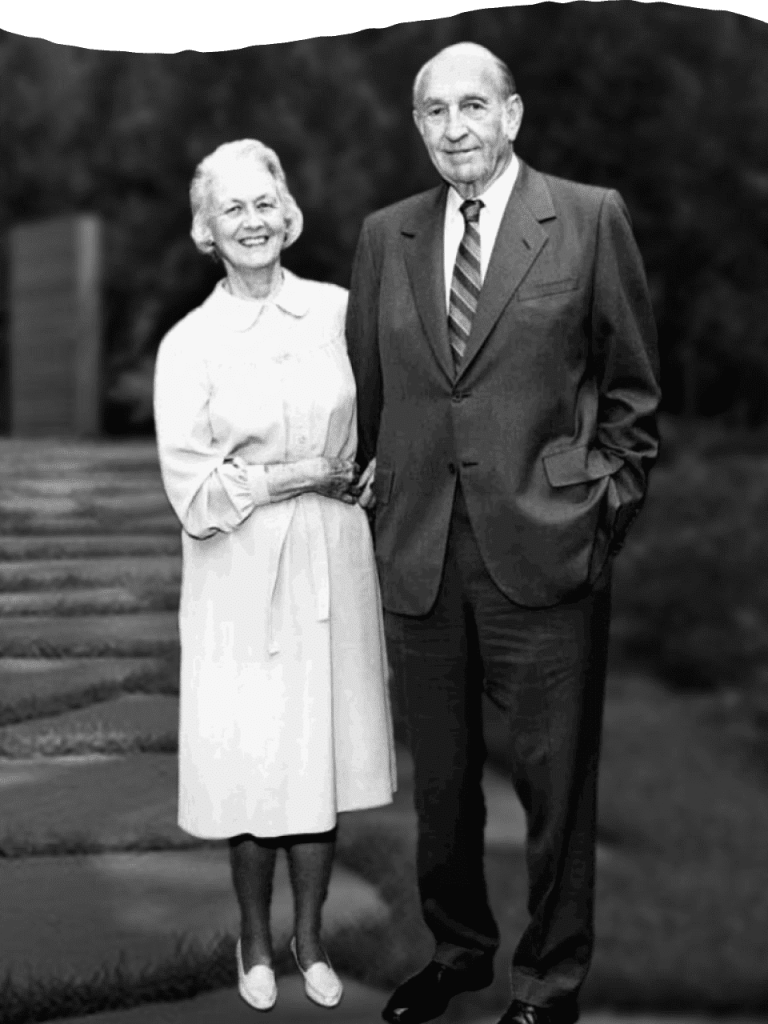
1964
A family’s tradition of giving becomes official
David Packard, one of the founders of the technology company Hewlett-Packard, establishes a family foundation with his wife, Lucile Packard.
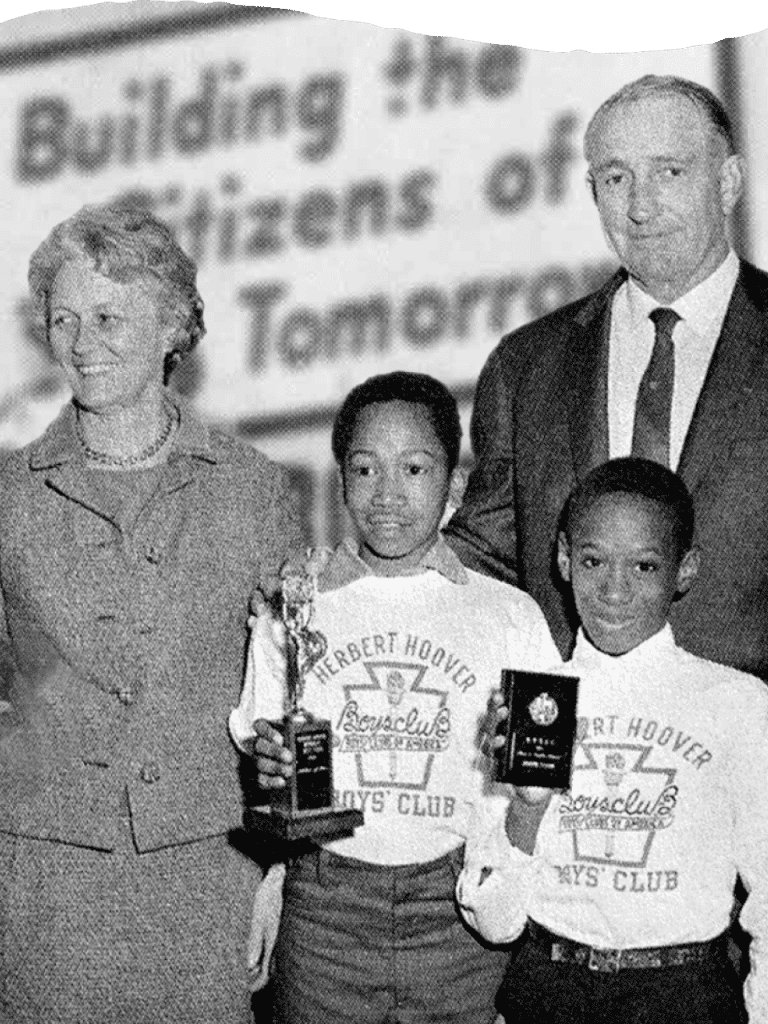
1971
Program areas emerge and Foundation giving increases
In 1971, the Foundation has five defined areas of grantmaking: Conservation and Ecology; Cultural; Education; Health; and Youth and Minority. Just over $100,000 in awards are authorized that year.
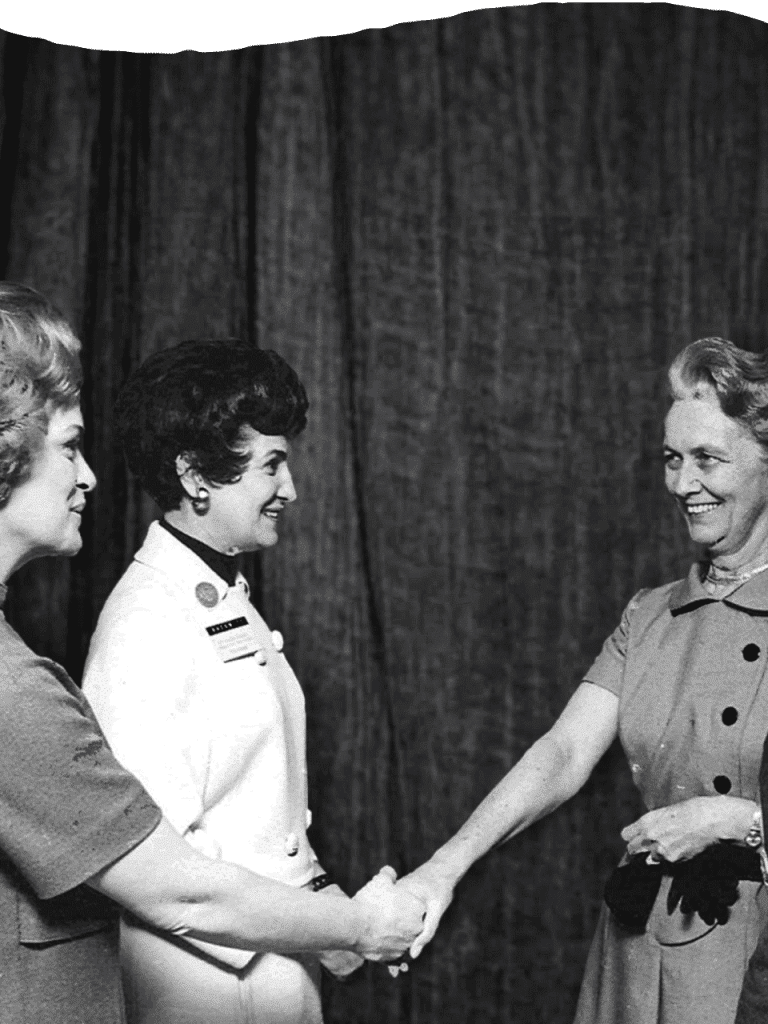
1975
The Packard Foundation hires staff, opens an office, and expands giving
The Foundation begins to expand operations and staff. Although grantmaking stays aligned with David and Lucile’s interests and values, more staff and space are needed to support a growing body of giving.
1977
Peninsula Open Space Trust launched to protect open space, farms, and parkland in fast-growing, expensive Silicon Valley
In partnership with local visionaries, the Foundation launches the Peninsula Open Space Trust, conserving lands on the San Francisco Peninsula. With the Foundation’s support, the Trust has now protected over 87,000 acres in perpetuity.
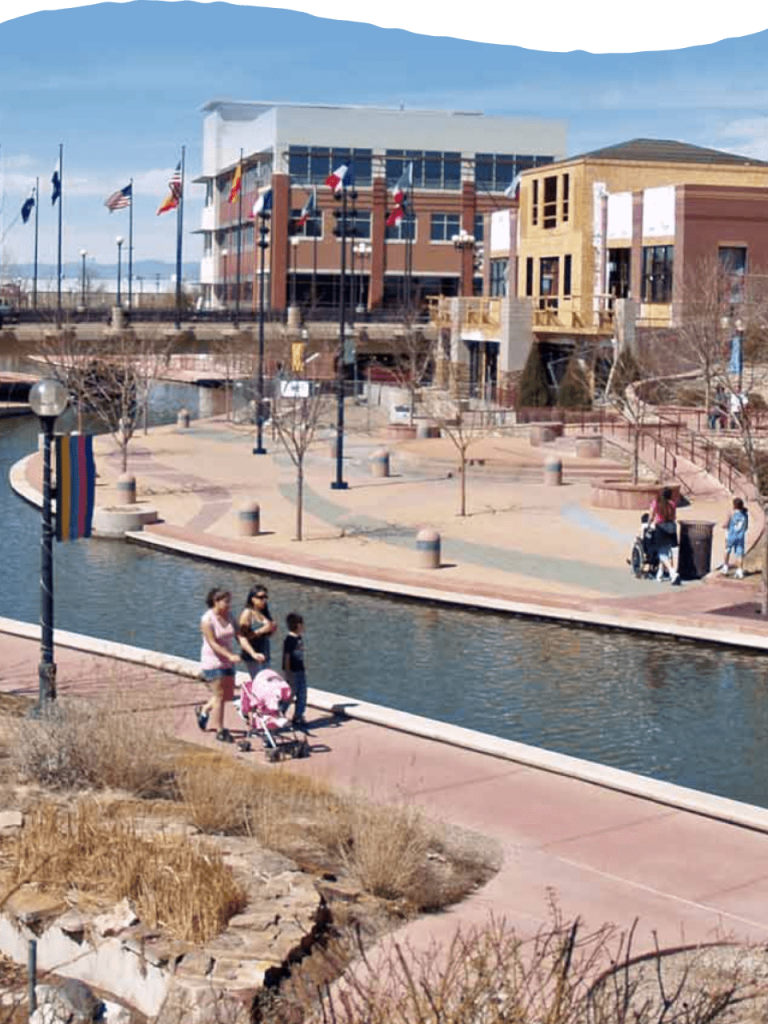
1977
Pueblo Advisory Board created to anchor lasting community grantmaking where David Packard was born and raised
The Foundation creates the Pueblo Advisory Board to support grantmaking in Pueblo, Colorado, where David Packard was born and raised. As of 2014, nearly $19 million in grants have been made to nonprofits in the area.

1979
Extended relationship begins with Second Harvest Food Bank of Santa Clara and San Mateo Counties
The Foundation begins its extended relationship with Second Harvest Food Bank of Santa Clara and San Mateo Counties, which goes on to become one of the largest food banks in the nation, serving nearly 250,000 people each month.
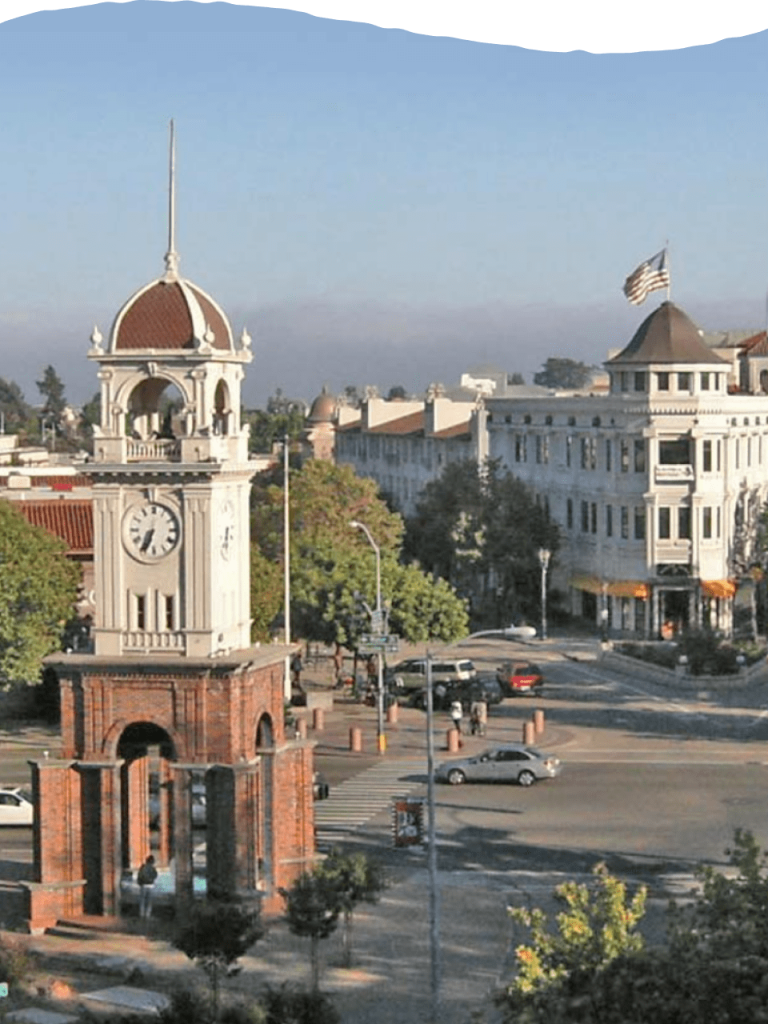
1982
Local community foundations empowered to create new ways for people to invest in the region
To support community-led investments, the Foundation provides its first assistance to start a community foundation – this one in Santa Cruz County, which works to make the region a better place to live.

1983
David Packard starts a program to focus on the fundamentals of nonprofit success
David Packard begins the Management Assistance program with a core belief: Organizations are more effective when they are equipped with thoughtful strategy, strong leadership, and sound operations.
1984
The Packard family opens an aquarium to reach new generations of ocean conservationists
In October 1984, the Monterey Bay Aquarium officially opens its doors after years of planning and construction. The aquarium project is led by marine scientists, local residents, and several members of the Packard family, including David and Lucile.

1987
Monterey Bay Aquarium Research Institute established as a leading center for ocean research and education
The Foundation creates the Monterey Bay Aquarium Research Institute, a leading center for research in ocean science. Institute scientists pioneer underwater robots that travel to remote, hard to access areas, resulting in a dramatic increase in seafloor maps and the discovery of hundreds of new species.

1987
The Packard Humanities Institute (PHI) is established as a non-profit foundation dedicated to archaeology, music, film preservation, and historical archives.
The Packard Humanities Institute (PHI) is established to create tools for basic research in the humanities and to foster public interest in the history, literature, and music of the past.

1987
Global Fund for Women advances women’s human rights and dignity
To advance the rights of women and girls, the Foundation incubates the Global Fund for Women by providing office space and funding as it begins operations. The Fund invests in women-led organizations and women’s leadership.
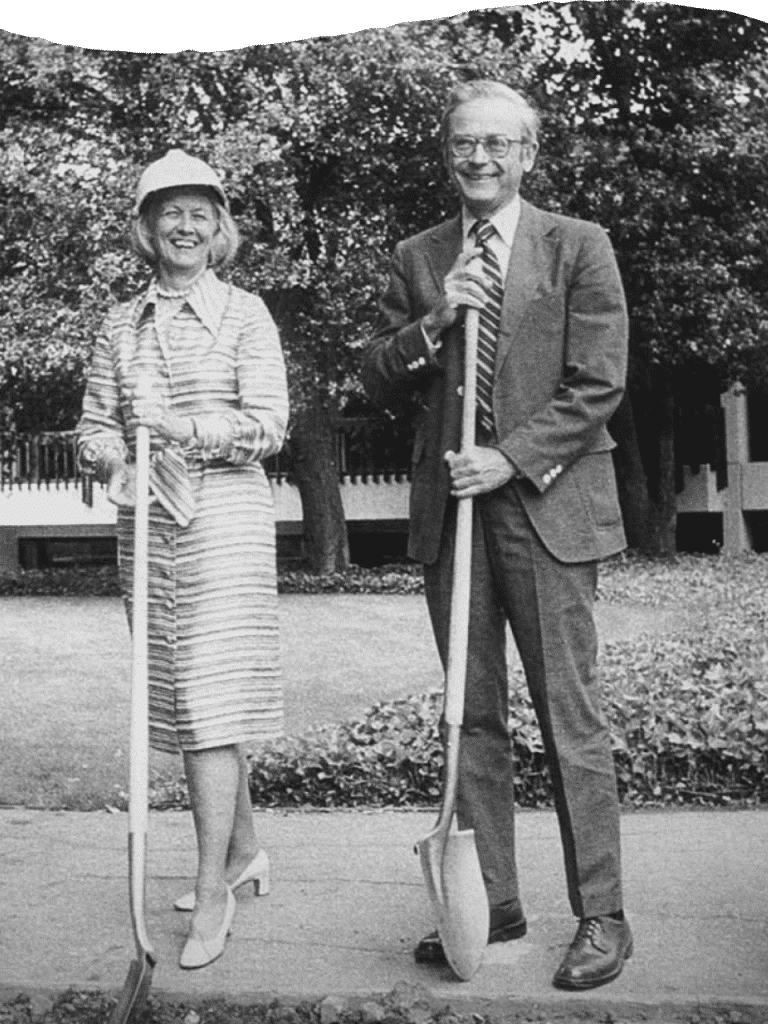
1987
The Packards fund the Lucile Salter Packard Children’s Hospital at Stanford, a world-class center of excellence
David and Lucile Packard donate over $40 million and personal leadership to design, build, and open the Lucile Salter Packard Children’s Hospital at Stanford. The Hospital goes on to be ranked in the top ten nationally, the youngest institution ever to achieve this honor. Today, the Lucile Packard Children’s Hospital is an internationally recognized pediatric and obstetric hospital driven by Lucile Packard’s vision to care for every child. It has revolutionized care, bringing together labor and delivery, so new parents can bond with newborns while getting world-class care.
1987
The Foundation invests $18.8 million in Historically Black Colleges and Universities to advance STEM fields
To strengthen education in science, technology, engineering, and mathematics (known today as STEM) and train new professionals.
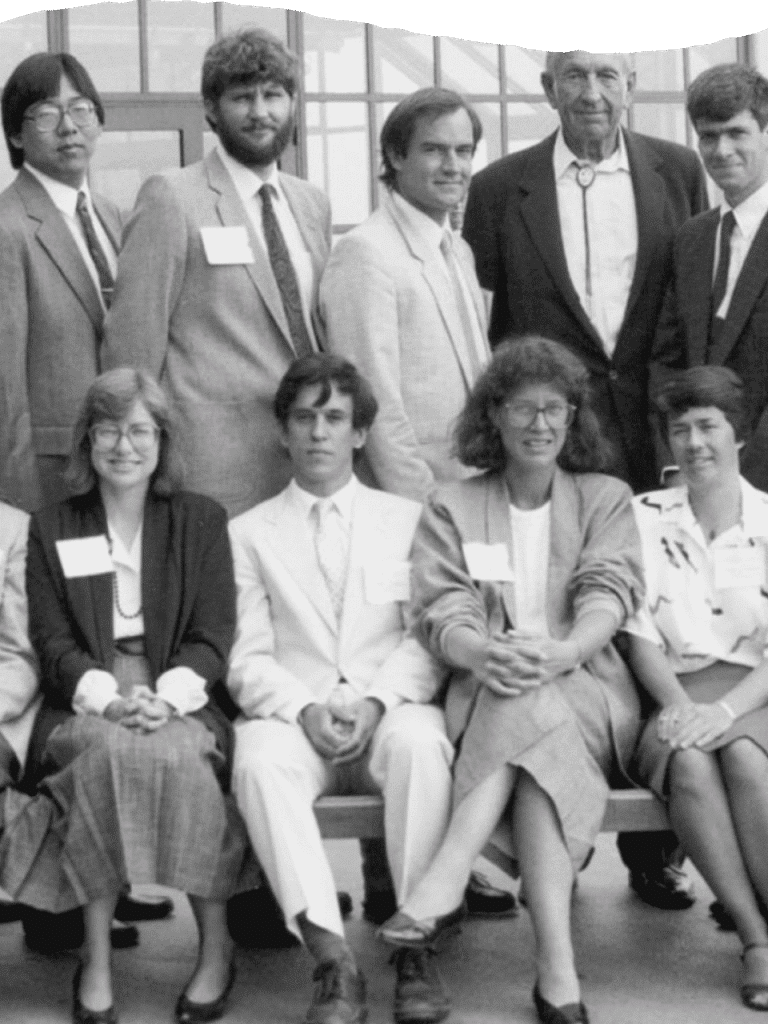
1988
Packard Fellowships for Science and Engineering is created to bring fresh thinking to complex issues
The Packard Fellowships for Science and Engineering is created to support the nation’s most promising early-career scientists and engineers with flexible funding to take risks and explore new frontiers in their fields of study. Fellows have gone on to receive the highest accolades, including Nobel Prizes in Chemistry and Physics, Fields Medals, Alan T. Waterman Awards, Breakthrough Prizes, Kavli Prizes, and elections to the National Academies of Science, Engineering, and Medicine.

1988
Historic Stanford Theatre purchased to protect and restore “the pride of the Peninsula”
To protect and restore “the pride of the Peninsula,” as it was known when it first opened in 1925, the Foundation purchases the historic Stanford Theatre. The restoration project allowed the Stanford to become a place where classics are both shown and saved.

1991
Inaugural issue of The Future of Children published to translate best social science research for policy recommendations affecting children
The Foundation publishes its first issue of The Future of Children, a journal translating the best social science research about children into information that is useful to policymakers, grantmakers, advocates, and others. The journal is later taken over by a team at Princeton and Brookings where it continued sharing policy briefs and outreach activities in the areas of education, physical and mental health, racial and ethnic disparities, and more.
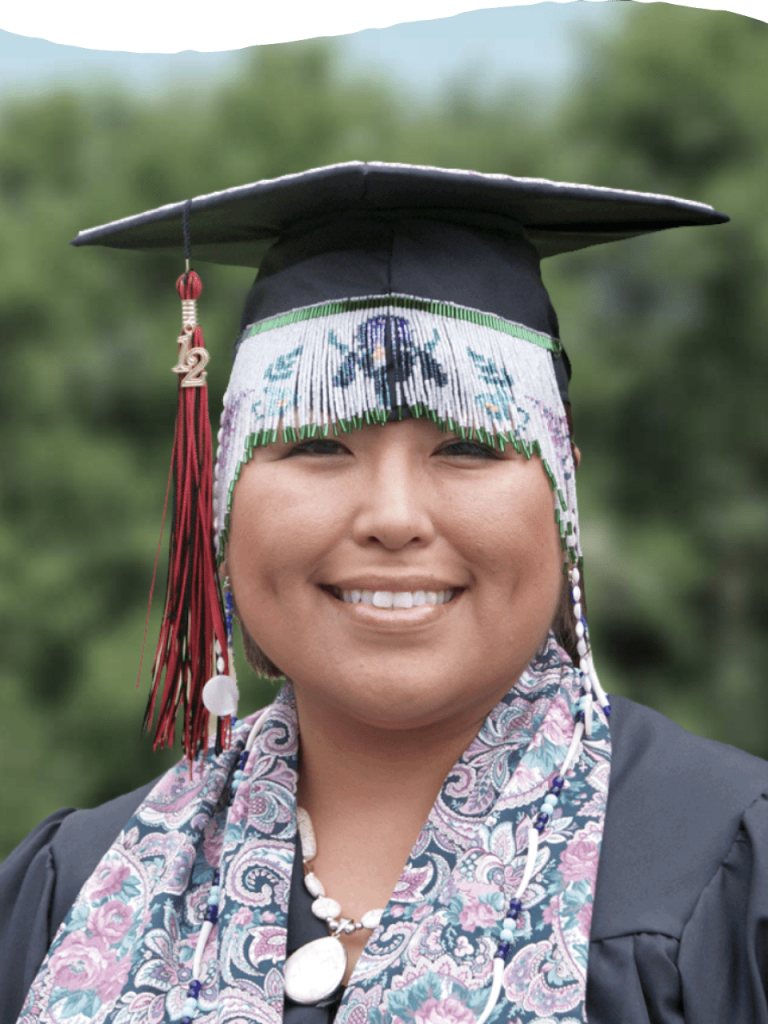
1994
Math, science, and technology education improved at tribal colleges in the United States
Over ten years, the Packard Foundation invests $20.6 million in colleges established by Native American Tribes, supporting science, mathematics, and technology education at these schools.
1995
Low-interest loans help conserve 1.6 million acres of land valued at more than $1 billion
The Packard Foundation provides funding for land acquisition and a variety of conservation projects in 10 western states. Investments of more than $150 million protect 1.6 million acres of land valued at more than $1 billion.

1996
New social franchising model established while expanding family planning services in India
Family planning work in India helps build the concept of social franchising. Foundation grants support the operation of more than 100 clinics, policy advisement, and the development of contraceptive technologies.

1998
Conserving California Landscapes Initiative protects scenic and significant areas of the Golden State
The Conserving California Landscapes Initiative is launched to protect scenic and environmentally significant areas. $148 million in grants and $55 million in program-related investments leverage private and public funds to preserve 450,000 acres.

1998
China Sustainable Energy Program improves energy efficiency and use of renewable resources
Foundation funding creates the China Sustainable Energy Program, connecting China with experts from around the globe for advice on energy efficiency and renewable resources.
1998
Family planning and reproductive health bolstered through leadership development in highest-need countries
The Packard Foundation invests in more than 2,000 family planning and reproductive health leaders from across the world through a leadership development programs that fosters shared learning and strengthens leadership skills.

1998
From Baja to Bali, some of the world’s most biologically important coasts and marine areas protected by Foundation funding
The Foundation creates two subprograms, one focusing on the Gulf of California and the other on the Western Pacific, to help protect some of the world’s most biologically diverse marine habitats.

1998
Marine Stewardship Council helps propel markets toward more sustainable ocean fisheries
The Packard Foundation’s push for sustainable ocean fishing included the launch of the Marine Stewardship Council in 1998. It makes a difference. By 2024, 15 percent of the world seafood market is certified to council standards.

1999
Plan B emergency contraception medication guided to market when other support was limited
The Foundation plays a major role in bringing Plan B emergency contraception medication to the market. Grants and program-related investments aid development, testing, preparation for FDA approval, training, and education. Over the next fifteen years, more than 15 million U.S. women benefit from its use.

1999
Implementation of State Children’s Health Insurance Program brings health coverage to millions of kids since the program’s inception
The Children’s Health Insurance Program ensures coverage to millions of kids. Packard Foundation grants to children’s and health policy organizations speeds implementation and research support brings better understanding of issues.

2000
The safe medical abortion drug mifepristone is brought to market in the U.S.
Grant and loan support from the Packard Foundation is key to bringing the safe medical abortion drug mifepristone to market in the United States. The Foundation’s investments supported the manufacturer through the FDA approval process, helped educate clinicians about the new medicine, and raised awareness of its availability.
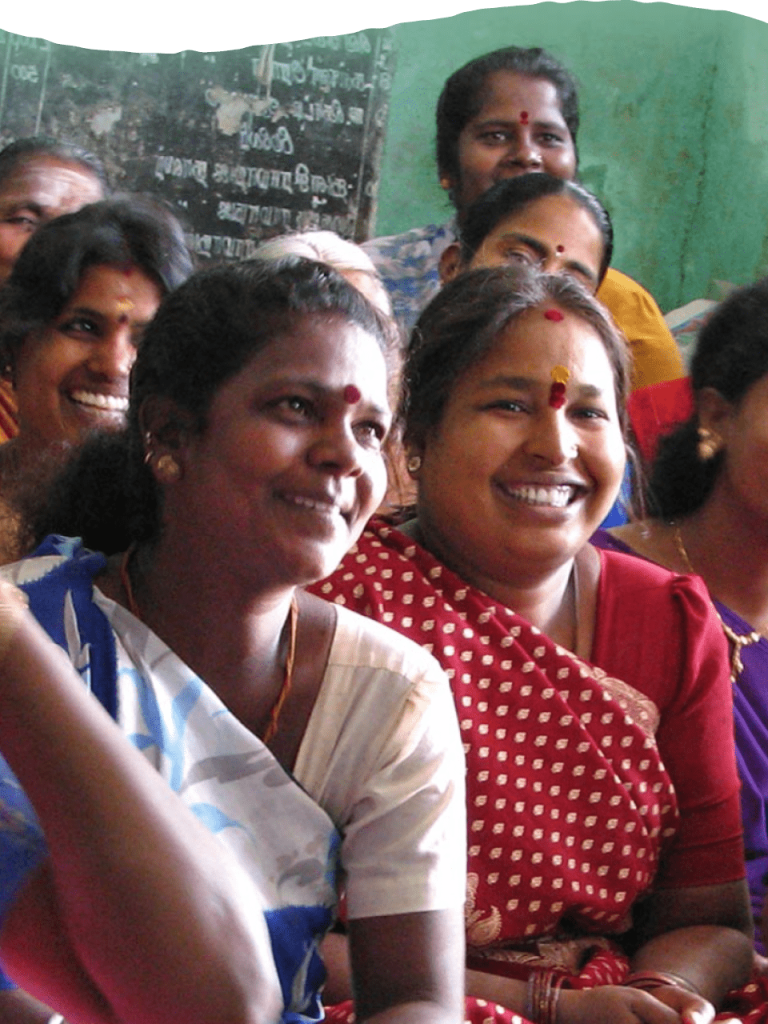
2001
PRACHAR Project improves the reproductive behavior of adolescents and young adults in Bihar, India
Foundation investments in the ambitious PRACHAR Project, an initiative by Pathfinder International, support work to successfully delay the age at which participating women have their first child, an indicator long thought to change only through broad secular improvements in social and economic contexts.
2002
Thousands of acres of salt ponds along the San Francisco Bay shore and Napa River are acquired and restored
In a landmark public-private partnership, the Packard Foundation teams with the Moore and Hewlett Foundations and others to purchase 16,500 acres of salt ponds along the San Francisco Bay shore and Napa River to turn them into wetlands and tidal marshes.

2003
Voluntary quality preschool for all three- and four-year olds in California helps ultimately to serve nearly 300,000 children most in need of access
With growing scientific understanding of the importance of early learning for college graduation and success in life, the Foundation makes a ten-year commitment focusing its education grantmaking on advancing public policy changes that provide funding and directives ensuring all children can access the quality preschool experiences they need to succeed in school and beyond.

2003
Marine Protected Areas conserve and stabilize more than 16 percent of California’s coastal waters between Santa Barbara and Mendocino counties
Foundation provides critical support and leadership for a public process to design California’s Marine Protected Areas (MPAs). The interconnected statewide network of MPAs is the first of its kind in the United States.

2006
Environmental groups, Indigenous people, industry, and government agree on a protected area network and ecosystem-based management across the 21 million-acre Great Bear Rainforest on the coast of British Columbia
As part of the Cascadia program, the Foundation provided 33 grants totaling $19,749,774 to help secure a landmark agreement to protect the Great Bear Rainforest, a globally-significant coastal temperate rainforest in British Columbia. The agreement included protected areas, ecosystem-based management, new land use decision-making processes that are more inclusive of indigenous interests, and a regional economic development fund.
2006
In an effort to restore sustainable marine ecosystems, the Foundation commits $2 million to reversing the decline of marine birds
Seeking to reverse the decline of select bird species, the Foundation makes an initial $2 million commitment to eradicate invasive species from important seabird breeding islands. After the success of these initial projects, the Foundation further expands this island restoration work and supports seabird bycatch reduction and protection of critical coastal habitat for shorebirds.
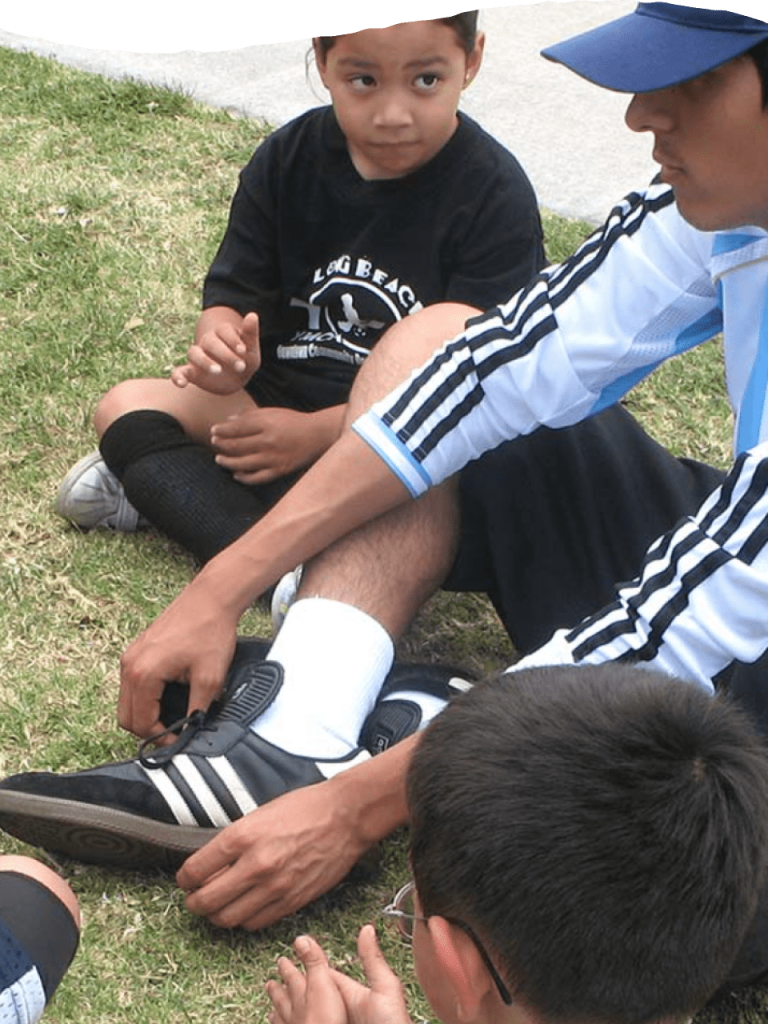
2006
The Foundation seizes an opportunity to assist the State of California in expanding its after-school program
Joining with the California Department of Education and other philanthropies, the Foundation funds a comprehensive planning process leading to the development of a blueprint and implementation of the state-wide expansion of after-school programs in California.

2007
New states-to-national strategy works to ensure all of America’s children have health insurance
Foundation launches Getting to the Finish Line: Insuring America’s Children, a national advocacy network aimed at ensuring all children in the U.S. have health insurance coverage and access to quality care. The Finish Line Network now spans 24 states and works to protect and advance federal and state policies to improve health care coverage and access to quality health care services.
The Foundation launches a new, multi-year investment aimed at ensuring all children in the U.S. have health insurance providing the care they need.
2008
ClimateWorks Foundation and network launched to reduce greenhouse gas emissions and avert catastrophic global climate change
The Packard Foundation makes an initial seven-year $500 million commitment to launch and support the ClimateWorks Foundation and network, designed to be the central hub of a global philanthropic network to help create a safer climate future.

2008
Montana Legacy Project buys 310,000 acres from Plum Creek Timber, preserving habitat for threatened wildlife species
The Montana Legacy Project purchases more than 310,000 acres from Plum Creek Timber Company, right at the heart of the Crown of the Continent ecosystem, a larger area of wild habitat encompassing Glacier National Park, the Bob Marshall Wilderness, and surrounding lands. Through grants and PRIs, the Packard Foundation is an early investor in the project, which preserves habitat for grizzly bears and Canada lynx.

2009
Fund created to help nonprofit organizations weather economic downturn
As organizations struggle in the face of a major economic downturn, the Packard Foundation partners with the Applied Materials Foundation to establish the Nonprofit Effectiveness Fund through the United Way of Silicon Valley.

2009
Hundreds of programs extend their programs to develop high quality-summer enrichment programs in California for 50,000 children
With leadership and funding by the Packard Foundation, six hundred after-school programs extend their work into the summer, helping to define what constitutes a high-quality summer enrichment program in California and ensuring access for 50,000 children.
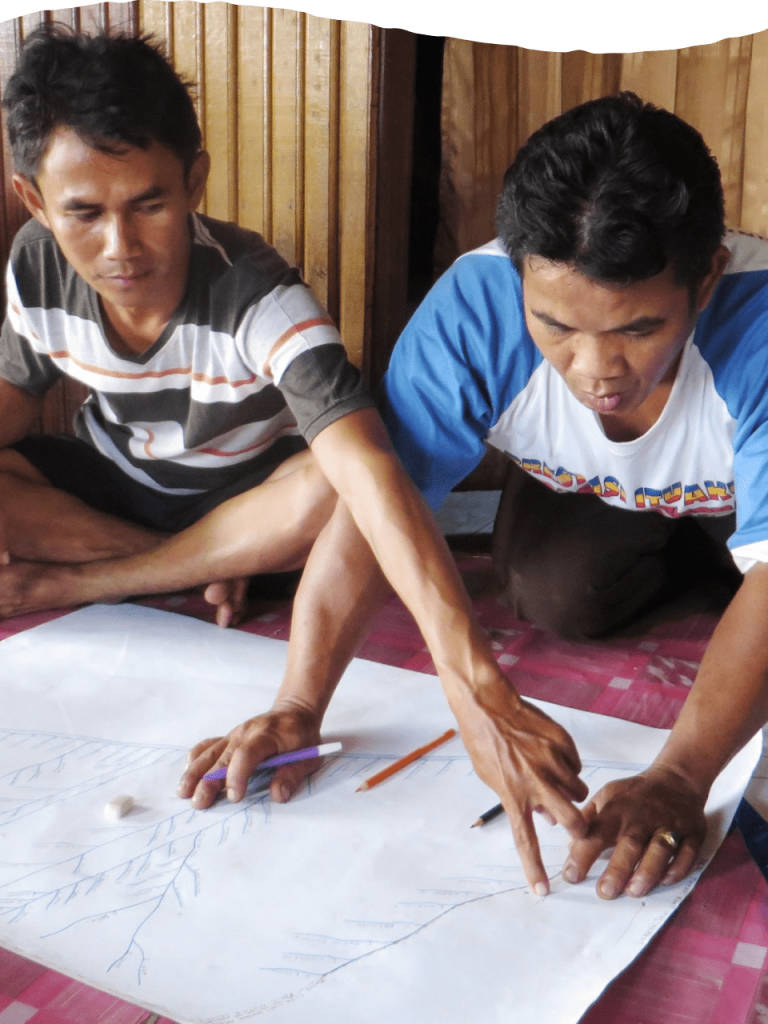
2009
Climate and Land Use Alliance (CLUA) launched to lower greenhouse gas emissions by protecting forests and promoting sustainable agriculture
The Foundation escalates its work against climate change, helping launch the Climate and Land Use Alliance to improve land use management in the high-impact regions of the United States, Mexico/Central America, Brazil, and Indonesia.

2010
California adopts statewide program to close the early education access gap for four-year-olds
Transitional Kindergarten (TK) provides an additional year of a high-quality early childhood education with a certificated teacher for 120,000 four-year-olds across California, 34,000 of whom have never had access to preschool.
2013
Foundation headquarters becomes largest building ever to achieve Zero Energy certification in first full year of occupancy
In its first year of occupancy, the Foundation headquarters generates more electricity than it uses and becomes the largest building to achieve Zero Energy certification through the International Living Future Institute.
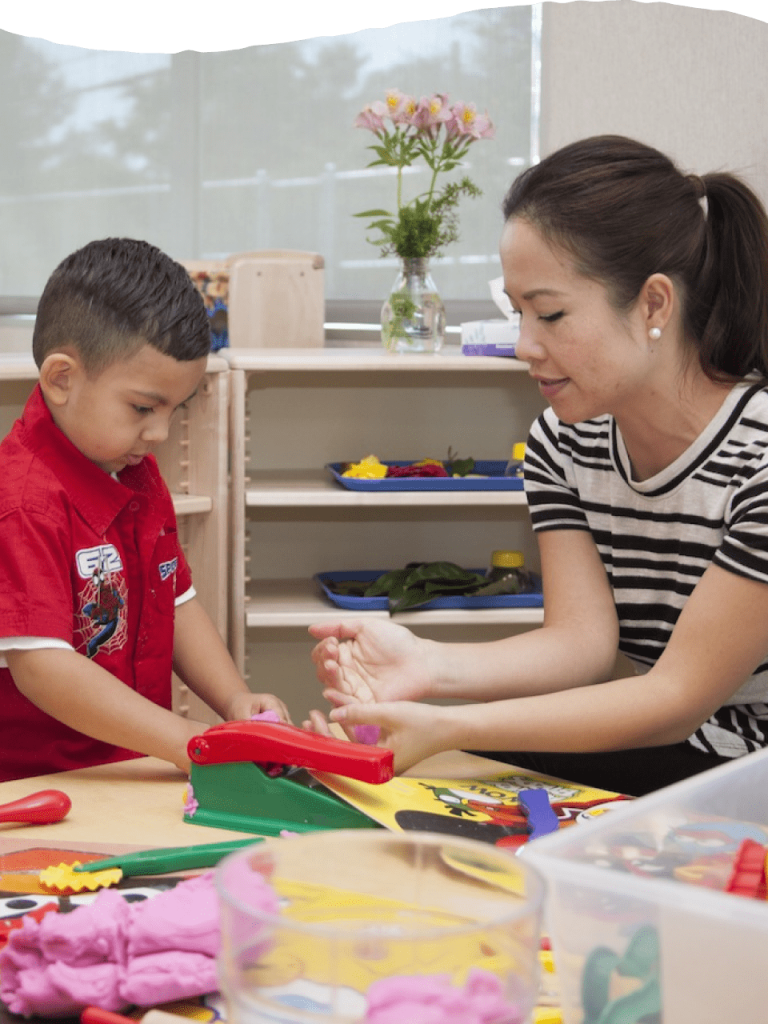
2015
State-of-the-art early learning center opens in East San Jose
Made possible in part by low-interest loans from the Packard Foundation, Educare California at Silicon Valley opened its doors, bringing an early childhood education program, a family resource center, a professional development institute, and an early career academy to the community. It serves as a laboratory for high-quality early learning for the children of East San Jose.
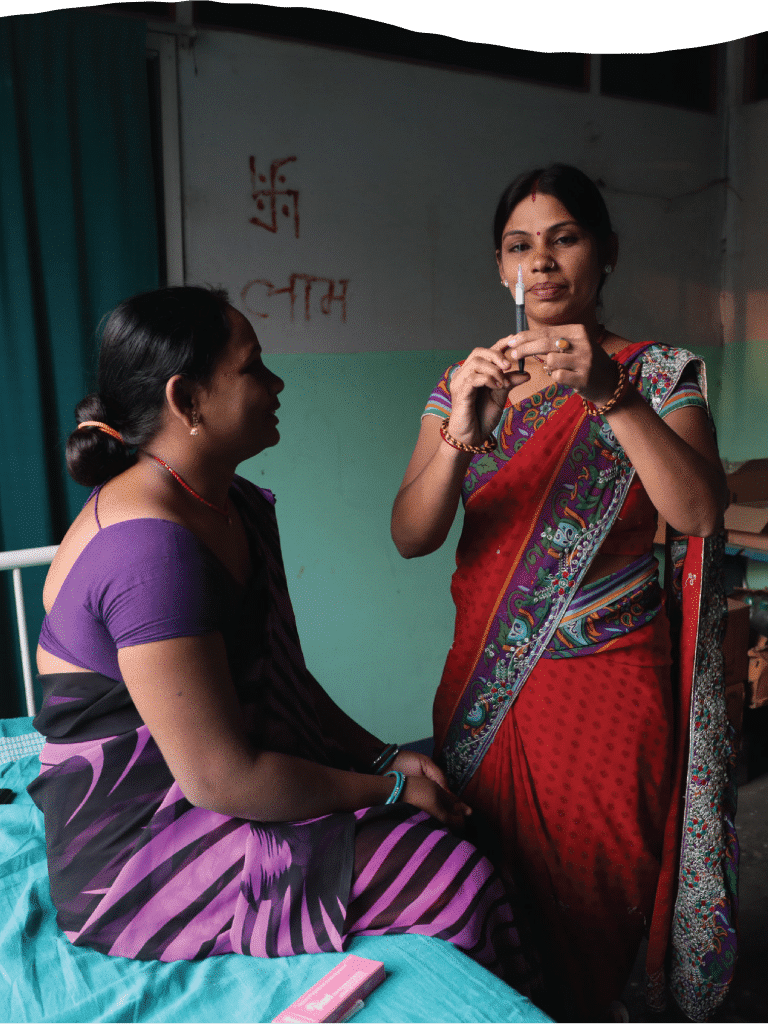
2016
India introduces an injectable contraceptive into public health system
Long-time Foundation grantees successfully advocated for and supported the government in the first expansion of contraception options in India in more than three decades. Along with other factors, the availability of injectable contraceptives led to dramatically improved contraception rates across the country.
2019
The Sperry S. and Ella Graber Packard Fund for Pueblo established
Recognizing that the needs and priorities of the community of Pueblo, David Packard’s birthplace, would be best carried out by the people closest to the issues, the Packard Foundation and the Caring for Colorado Foundation launch the Sperry S. and Ella Graber Packard Fund for Pueblo. The Fund is an endowment established with a $20 million one-time grant from the Packard Foundation to Caring for Colorado’s Centennial Fund.

2019
Generic abortion products increase healthcare availability and affordability
In addition to supporting the initial availability of medical abortion pills in 2000 (then called RU-486), Foundation funding helped make generic medical abortion pills (mifepristone and misoprostol) available, bringing down costs for patients by 30% and expanding availability of abortion care throughout the U.S. at a critical time.

2019
Contraception use increases by 27% in Ethiopia
With the Foundation’s support, the Ethiopia Public Health Association (EPHA) has trained thousands of health extension workers to deliver comprehensive family planning education in their communities. Programs like this contributed to a 27% increase in contraception use over 14 years.

2020
Japan adopts first new fisheries management law in over 70 years
With support from the Packard Foundation, a coalition of local and international organizations in Japan successfully worked with the Japanese government and business leaders to advocate for a new fisheries law aligned with global best practice in fisheries management.

2020
Pandemic funding addresses urgent needs in global communities
During the COVID-19 pandemic, the Foundation gave $53 million to the urgent, unprecedented needs of our partners and their communities around the world. These funds ensured stable and sustained leadership by connecting leaders with coaching and other resources and supported scientific research to inform public health decisions, strengthening the global response and vaccination efforts.
2020
Foundation makes initial $100 million commitment to advance racial justice in the U.S.
As the nation reckoned with its history of racial inequality, the Foundation made an initial commitment of $100 million to advance racial justice in the U.S.

2021
Mission Investments advance racial equity through community development financing
The Foundation awarded $25 million in mission investments to Community Development Financial Institutions (CDFIs) and other organizations that provide credit to low income families – particularly Black, Latino, and Indigenous individuals who have been historically underserved by the commercial banking system. The investments help stabilize a family’s finances and housing, start and grow small businesses, and build intergenerational wealth.

2021
Expanded access to the Child Tax Credit for families
The Foundation invested $20 million to ensure the equitable and effective distribution of American Rescue Plan Act federal funds. Funding enabled families who earn too little to file taxes to claim Child Tax Credit (CTC) benefits through outreach and a mobile web portal, which led to 81,000 families claiming nearly $300 million, cutting the child poverty rate nearly in half and proving its power to lift children and families out of poverty during that time.

2021
Foundation joins historic pledge to advance Indigenous leadership and tropical forest protection as an essential climate solution.
In 2021, the Packard Foundation joined a coalition of governments and philanthropic organizations that collectively pledged $1.7 billion to advance the land and resource rights of Indigenous Peoples and local communities, whose stewardship of tropical forests is key to addressing climate change.
2022
Foundation adopts new strategic framework including three interconnected goals
The Foundation shifts its focus to an integrated grantmaking approach that recognizes the inextricable link between people and the environment and that we must make and sustain urgent progress on both to bring to life our vision of a more just and equitable world where people and nature flourish. Through the adoption of a new strategic framework, the Foundation identifies three overarching, interconnected goals to guide its work: Build Just Societies, Invest in Families and Communities, Protect and Restore our Natural World.

2022
Foundation expands grantmaking to focus efforts on creating a thriving, resilient U.S. democracy
Recognizing that a more robust, inclusive, and responsive democracy in the U.S. accelerates progress and supports lasting solutions across the Foundation’s investments, the Foundation expanded its grantmaking to strengthening a thriving, resilient democracy that meets the needs of a politically, racially, and religiously diverse America.

2022
“Forests, People, Climate” collaborative launches to halt and reverse tropical deforestation
Together with the Climate and Land Use Alliance and other funders, the Packard Foundation co-founded the bold, new “Forests, People, Climate” collaborative. This collaborative mobilizes funders and civil society organizations to focus on equitable and enduring solutions that safeguard tropical forests and support those stewarding them, in particular Indigenous Peoples, with the goal of reducing global emissions up to 15% by 2030.

2023
First over-the-counter birth control approved by FDA
In 2015, a $12 million grant supported the Free The Pill coalition as they worked to secure FDA approval for the first birth control pill available over-the-counter. In 2023, Opill becomes available without a prescription online and in pharmacies, increasing accessibility, especially for people who are uninsured, who live in rural places, and those who do not have easy access to a healthcare provider, transportation, or childcare.
2023
New Civil Society and Leadership grantmaking reflects deepened investment in leaders, organizations, networks, and movements
Recognizing that a strong civil society is essential to achieve progress toward our collective vision, the Foundation expands its commitment to strengthening organizations and leaders by funding the systems, institutions, and movements working to improve their communities as well as supporting inclusive, thriving civic spaces where people can exercise their rights and express diverse viewpoints without fear.

2023
The Foundation joins the Invest in Our Future fund to foster a greener future
Alongside four peer funders, the Foundation contributed $25 million as a founding member of the Invest in Our Future fund, a pooled fund launched in 2023 dedicated to ensuring that funding from the landmark legislation is distributed effectively and equitably to foster a green future, particularly in communities that might otherwise be overlooked.

2023
The Ocean Resilience and Climate Alliance launches to accelerate ocean-climate action
The Packard Foundation is a founding partner of the Ocean Resilience and Climate Alliance (ORCA), a philanthropic initiative that seeks to identify and fund ocean-climate solutions across mitigation, sequestration, adaptation, and resilience. ORCA’s principal function is to provide a surge of more than $350 million dollars in grants over four years to catalyze work across a range of immediate ocean-climate priorities, including supporting responsible offshore wind.
2024
Philanthropic partnership supports implementation of the Bipartisan Infrastructure Law and the Inflation Reduction Act
Together with four peer funders, the Foundation contributed $25 million to join the Invest in Our Future fund, a pooled fund launched in 2023 dedicated to ensuring that funds from landmark legislation are distributed effectively and equitably to foster a green future, particularly in communities that might otherwise be overlooked. This has enabled efficient fund deployment; for example, grantees secured over $12 billion in funds from the Greenhouse Gas Reduction Fund program.

2024
Equitable grantmaking practices embedded through Indirect Cost Coverage commitment
Building on six years of supporting indirect costs (the expenses of doing business that are necessary for an organization to operate) the Foundation updates its approach to provide a minimum indirect cost rate of 15-25% on all project grants, allowing organizations to adequately pursue their critical, mission-driven work.
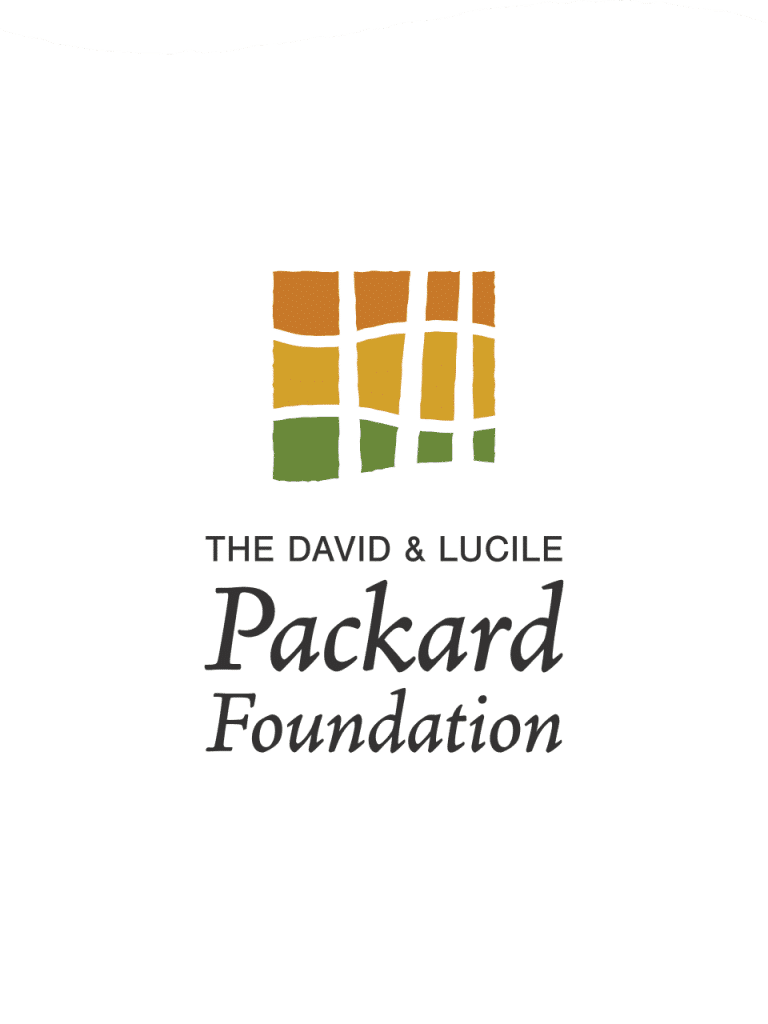
2024
New visual identity reflects the Foundation’s interconnected approach
Drawing inspiration from the beauty of its local environment and incorporating the concept of a ‘weave,’ the Foundation adopts a new visual identity that represents interconnected ideas and collaborative efforts uniting to bring to life our vision for the future while paying tribute to the institution’s legacy of innovation and impact.
2024
Commitment to net zero carbon emissions by 2040
Building on long-term efforts to reduce its carbon footprint, the Foundation commits to achieving net zero carbon emissions of its organizational operations by 2040. It plans to achieve this through reducing its operating emissions and through the purchase of carbon offsets.
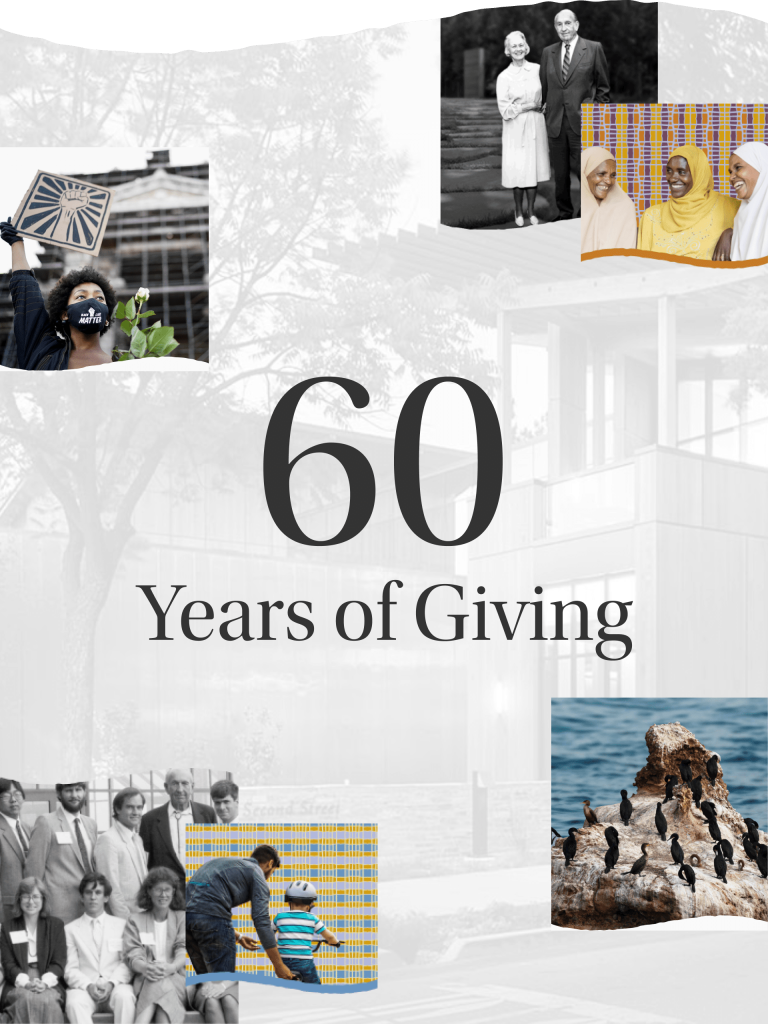
2024
The Packard Foundation celebrates 60 years of innovation and impact
Though the Foundation’s grantmaking has evolved over the past six decades, it remains committed to partnering with changemakers to drive innovation and impact; creating enduring solutions to complex problem; understanding the interdependency of global issues; and ensuring equity and justice are at the center of its work.